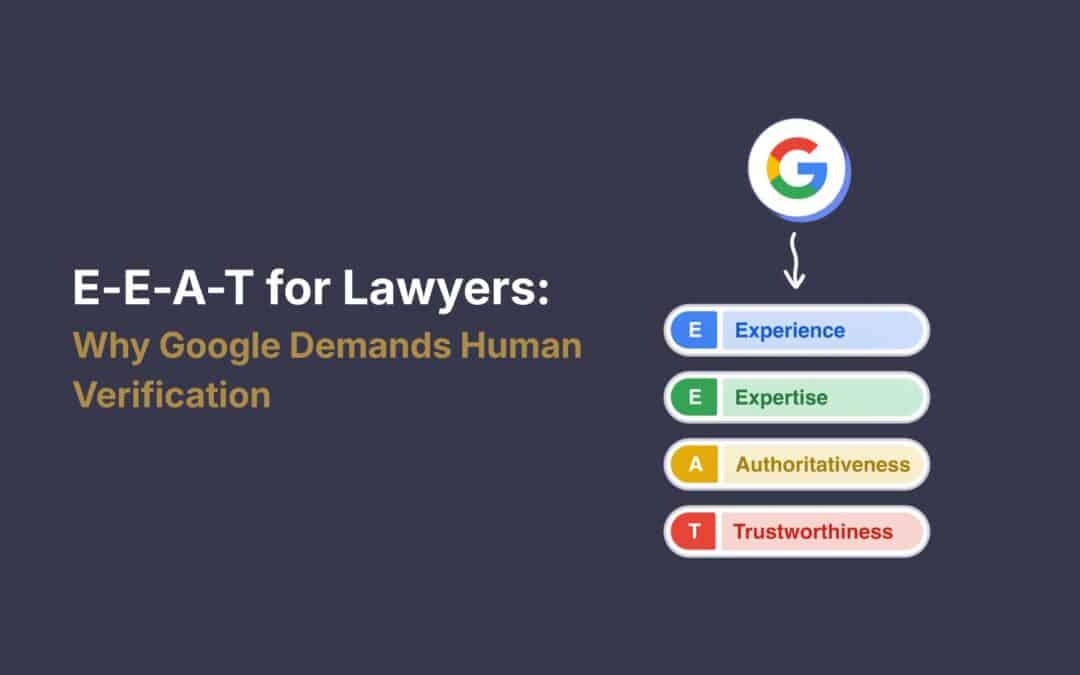For law firms seeking to secure their place at the forefront of online visibility, the conventional approaches to search engine optimisation (SEO) are rapidly evolving. The digital realm demands more than just basic keyword targeting; it requires a nuanced understanding of user intent, predictive analysis, and scalable insights. This is precisely where AI for law firm SEO steps in, transforming how legal practices conduct keyword research and formulate their digital strategies. The shift isn’t incremental; it’s a fundamental change in how law firms can identify, attract, and convert their ideal clients through organic search.
Understanding AI’s Capabilities in Keyword Research
Historically, keyword research involved manual analysis of search volume, competition, and basic related terms. While effective to a degree, this method often missed the deeper context of user queries. Artificial Intelligence, however, brings unprecedented analytical power to this crucial task.
AI moves beyond simple keyword matching to embrace semantic search and user intent. Modern search engines, powered by AI, no longer solely rely on exact keyword matches. Instead, they interpret the meaning and context behind a user’s query. AI tools can analyse vast datasets to discern the true intent behind phrases like “what happens if I break a lease early” (informational) versus “commercial lease dispute solicitor Sydney” (transactional). This allows law firms to tailor content precisely to the user’s stage in their legal journey, whether they are seeking initial information or actively looking to instruct a solicitor.
Furthermore, AI offers predictive analytics, enabling law firms to anticipate emerging legal search trends. By analysing historical search patterns, news events, and social media discussions, AI can flag up-and-coming legal issues or shifts in public interest. Imagine being able to forecast an increase in queries related to specific data protection regulations before they become widespread, allowing your firm to create authoritative content proactively and capture this early traffic. This foresight provides a significant competitive advantage.
AI also facilitates competitor analysis at scale, uncovering hidden opportunities that manual methods might miss. AI-powered tools can quickly analyse competitors’ entire backlink profiles, content strategies, and ranking keywords, identifying gaps in their coverage or areas where your firm could dominate. This isn’t just about seeing what keywords your rivals rank for, but understanding why they rank, identifying their content pillars, and revealing underserved legal niches.
Finally, AI excels at long-tail and conversational keyword identification. With the rise of voice search and more natural language queries, users are increasingly employing longer, more specific phrases. AI algorithms can pinpoint these nuanced, often lower-volume but highly converting, long-tail keywords that human researchers might overlook. For example, instead of just “divorce lawyer,” AI might uncover “cost of undefended divorce in Manchester” or “how to change child custody agreement.” These specific queries indicate a higher level of intent and often lead to better conversion rates.
Key Benefits of Using AI for Law Firm Keyword Research
Integrating AI into your law firm’s keyword research yields several substantial benefits, streamlining processes and enhancing outcomes:
- Enhanced Precision and Relevance: AI’s ability to understand semantic connections and user intent means that the keywords identified are not just popular, but genuinely relevant to the legal services your firm provides and the specific needs of potential clients. This leads to attracting a more qualified audience.
- Time and Resource Efficiency: Manual keyword research is incredibly time-consuming. AI automates the data collection, analysis, and clustering of keywords, freeing up your marketing team to focus on strategic content creation, link building, and client engagement. This efficiency translates directly into cost savings and increased productivity.
- Uncovering Niche Opportunities: AI can sift through immense datasets to identify highly specific, less competitive long-tail keywords and emerging search trends that resonate with niche practice areas. This allows smaller firms or those specialising in less common legal fields to carve out a strong online presence.
- Improved Content Strategy: With detailed AI-driven keyword insights, your content strategy becomes data-driven and highly effective. AI can suggest topics, content outlines, and even optimal content length based on what performs best for target keywords and user intent, ensuring your articles, guides, and service pages directly address client needs.
- Adaptability to Algorithm Changes: Search engine algorithms, particularly Google’s, are increasingly powered by AI. By using AI tools for your own SEO, you gain an inherent advantage in understanding and adapting to these changes, staying aligned with how search engines are evaluating and ranking content.
Implementing AI into Your Law Firm’s SEO Keyword Strategy
Successfully integrating AI into your law firm’s SEO keyword strategy requires a thoughtful approach, combining cutting-edge tools with human expertise.
Firstly, choosing the right AI-powered tools is paramount. While general SEO platforms like Semrush and Ahrefs have incorporated advanced AI capabilities for keyword research, competitor analysis, and content optimisation, there are also emerging specialised legal AI platforms designed for the legal industry that can offer deeper insights into legal-specific queries and data. Evaluate tools based on their features, data accuracy, ease of use, and relevance to your firm’s practice areas.
Once you have your tools, the next step is integrating AI insights into content planning. AI can generate detailed content briefs by analysing top-ranking pages for your target keywords, providing suggestions for headings, subheadings, key questions to answer, and even optimal word counts. This ensures every piece of content created is strategically aligned with user intent and primed for search engine visibility.
Optimising for AI-driven search features is also crucial. With Google’s increasing reliance on AI Overviews and featured snippets, structuring your content to provide concise, direct answers to common questions identified by AI can significantly boost your visibility. This often involves using clear headings, bullet points, and answering “what,” “how,” and “why” questions explicitly.
For firms with a strong local presence, leveraging AI for local SEO keyword targeting is essential. AI can help identify hyper-local search queries, analyse local competitor strategies, and optimise your Google Business Profile with location-specific keywords and services. This ensures that when someone searches for “probate solicitor near me” or “employment lawyer Bankstown,” your firm appears prominently.
Finally, and critically, remember the human element: reviewing and refining AI outputs. While AI offers powerful capabilities, it is a tool to assist, not replace, human expertise. Legal content demands absolute accuracy, ethical considerations, and a nuanced understanding that only a legal professional can provide. Always review, edit, and fact-check any AI-generated content or keyword insights to ensure they align with your firm’s standards, legal accuracy, and brand voice.
Case Studies and Practical Examples (Hypothetical)
Let’s consider how AI could practically benefit various law firms:
- A Personal Injury Firm: A Sydney-based personal injury firm used an AI tool to analyse emerging injury claim types from news articles, medical reports, and search trends. The AI identified a surge in “e-scooter accident claims” and “cycling accident compensation.” By proactively creating detailed articles and service pages around these keywords, the firm captured significant early traffic and established itself as an authority in these new areas, leading to a substantial increase in inquiries.
- A Corporate Law Firm: A corporate law firm specialising in Mergers & Acquisitions leveraged predictive AI to anticipate shifts in industry sectors most likely to see M&A activity. The AI analysed economic indicators, regulatory changes, and news sentiment, providing the firm with keywords related to “tech startup acquisition legal advice” and “due diligence for renewable energy companies.” This enabled the firm to target potential clients with highly relevant content before their competitors.
- A Local Family Law Firm: A family law practice in Melbourne utilised AI to analyse hyper-local long-tail keywords and conversational queries. The AI identified searches like “child arrangements order advice Melbourne” and “how to get a divorce without court in Melbourne.” By creating specific FAQ sections and blog posts directly addressing these queries, the firm saw a noticeable increase in local organic traffic and qualified leads.
Challenges and Considerations for Law Firms
While the benefits are clear, law firms must also be mindful of the challenges and considerations when incorporating AI into their SEO:
- Data privacy and security concerns are paramount. When using third-party AI tools, understand their data handling policies. Ensure no confidential client information or sensitive case details are inadvertently processed by external AI systems.
- Ensuring accuracy and ethical use of AI-generated insights is non-negotiable in the legal profession. AI can sometimes “hallucinate” or provide inaccurate information. Every piece of legal advice or information published based on AI research must be verified by a qualified legal professional.
- The need for human oversight and legal expertise cannot be overstated. AI enhances human capabilities; it does not replace the critical thinking, ethical judgment, and deep legal knowledge inherent to legal practice.
- Finally, the field of AI is rapidly advancing. Law firms need to stay updated with new tools, best practices, and ethical guidelines to ensure their AI adoption remains effective and compliant.
The Future of SEO for Law Firms with AI
The trajectory for SEO in the legal sector is undoubtedly intertwined with AI. AI will increasingly serve as an indispensable partner, streamlining processes, unearthing deeper insights, and enabling greater strategic agility. It’s not about replacing the astute legal professional or experienced SEO manager, but about empowering them with superior data and automation.
The increasing importance of E-E-A-T (Experience, Expertise, Authoritativeness, and Trustworthiness) in an AI-dominated search landscape means that while AI can assist in content generation, the actual legal expertise and demonstrable authority of the law firm and its solicitors will be more critical than ever for ranking success. Google’s AI-driven algorithms are designed to reward genuine value, accuracy, and credible sources.
For law firms, this means a commitment to continuous learning and adaptation will be key to sustainable growth. Embrace the tools, understand the shifts, and position your firm as a trusted, authoritative source of legal information.
Conclusion: Master Your Legal Marketing with AI
The integration of AI for law firm SEO is no longer a luxury but a strategic necessity for legal practices aiming for sustained online visibility and client acquisition. By harnessing AI’s power for next-generation keyword research and strategy, law firms can unlock unparalleled insights into client intent, identify lucrative niche opportunities, and optimise their content for the evolving landscape of search. This empowers firms to attract highly qualified leads, enhance their digital footprint, and ultimately, grow their practice in a competitive market.
To truly master your legal marketing and leverage the full potential of AI-driven SEO, partnering with experts is crucial. Contact Lift Legal Marketing today to discuss how we can help your firm implement cutting-edge AI-powered keyword research and develop a robust SEO strategy that drives real results.











